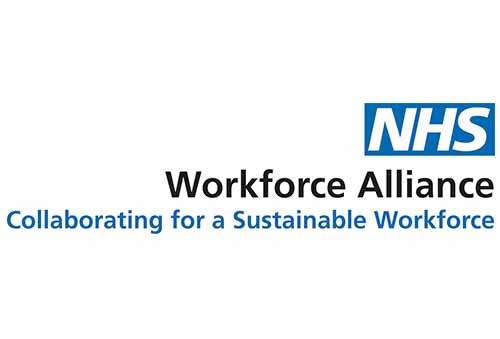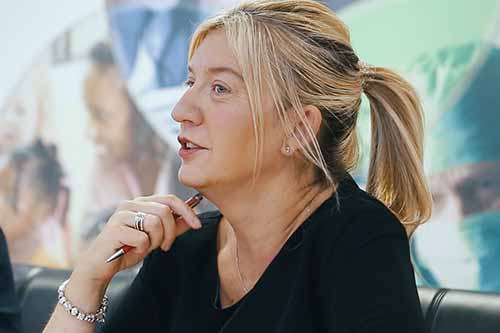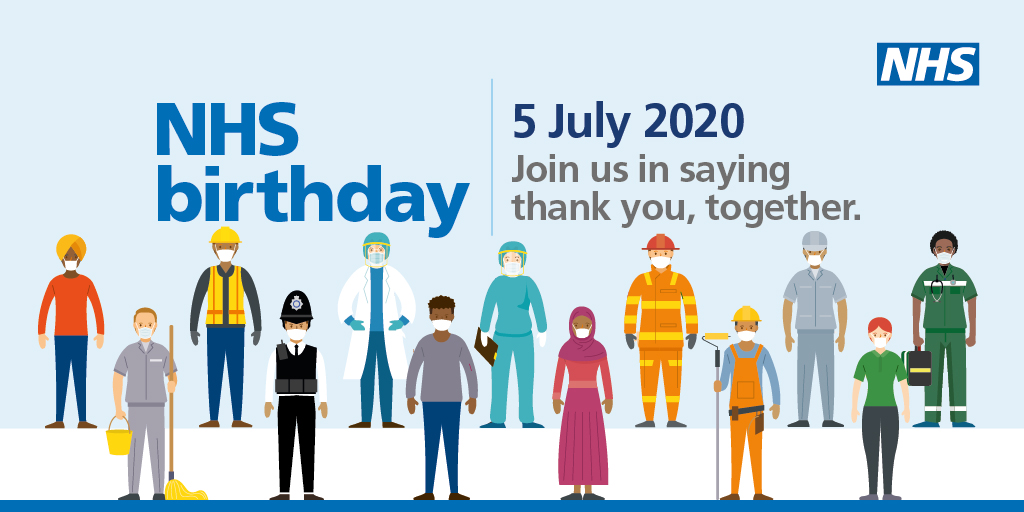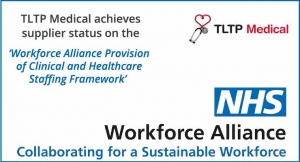Test Owner
Employee Spotlight - Phoebe Bone and Vicky Bates
At TLTP recognising our employees and supporting them to climb the career ladder is one of our core values. We pride ourselves in supporting all our employees to reach their full potential and in doing so we have a strong and loyal workforce.
This month we are delighted to recognise two members of our medical team who over recent months have gone over and above the call of duty to ensure all of their clients and candidates needs have been met, especially during the tough times we are facing.
Phoebe Bone and Vicky Bates, both valued members of the medical primary care team have excelled in their roles and it is a pleasure to promote them to Principal Recruitment Consultant.

Phoebe joined TLTP in September 2014 originally working in the Education division to support schools with their recruitment needs. After a successful five years, an opportunity became available to work within the primary care team in the Medical division. Phoebe grabbed this with both hands and needless to say she flourished ever since.

Vicky Bates joined TLTP in April 2015, her previous background in medical recruitment made her a natural fit for our medical division. Over the years Vicky has played an instrumental part in supporting the growth of various NHS projects and strengthening relationships with key clients.
Together, both Phoebe and Vicky lead the day to day running of the primary care team for Hertfordshire and Essex, and most recently supporting their co-workers in our domiciliary care division; TLTP Care to ensure the highest standards of patient care is delivered.
Being able to promote from within gives us immense satisfaction knowing that our workforce is growing, developing and creating new opportunities for everyone in the business.
We thank them for all their hard work, consistent effort, loyalty and the value they add to the company.
We wish them the very best of luck in their new roles.
Lisa Camp – Medical & Care Managing Director
Darryl Mydat – Chief Executive Officer
Interested in a career within recruitment? Find out more about how you can work for us.
London Teaching Pool Ltd. (TLTP Medical) has successfully been awarded accredited supplier status on the Workforce Alliance Provision of Clinical and Healthcare Staffing Framework.
The provisions awarded are:
- Lot 1 Nursing and Midwifery Staffing
- Lot 3 Allied Health Professionals and Health Science Services Staffing
- Lot 5 Social Care Staffing

This is a new National Clinical and Healthcare Staffing framework that has been published under the newly formed Workforce Alliance. The framework will be lead and managed by the NHS London Procurement Partnership (NHS LPP). It will be exercised on behalf of the Workforce Alliance, with the Awarding Authority being NHS LPP's Host Trust; Guy’s & St. Thomas’ Hospital NHS Foundation Trust.

The collaboration is a long-term plan to deliver a whole portfolio of health workforce services which helps to ensure there is an easy and quick access to a sustainable workforce.

Lisa Camp, Managing Director of TLTP Medical said “We are delighted to be part of a respectable framework that values our commitment to helping hospitals and medical practices deliver the best patient care and a high level of service. We are proud that our robust compliance and vetting procedures have been recognised, as this is an area, we continue to invest in.”
“The framework will allow us to continue to provide high quality, temporary, permanent and fixed term clinical and healthcare staffing services across the UK.”
"With over 14 years’ experience working closely with the NHS, and as a proud member of the REC; this recognition further reinforces our dedication to providing a recruitment solution that adds value. We look forward to meeting and exceeding the high-standards expected from this framework, in order to cater to the challenging recruitment needs and ensure the satisfaction of our clients.”
For more information, please visit National Clinical and Healthcare Framework.
To find out more about our recruitment services and how we can support you with your staffing needs, please get in touch with us on 020 8709 6553 or complete a call back request form and we will give you call.
Soft skills to make you an excellent nurse
Through education and on the job training a nurse will learn excellent clinical and performance skills which will allow them to practice nursing, these are known as hard skills. However soft skills which are an individual’s personality and core values cannot be taught, instead these can be developed and mastered over time. The absence of soft skills can lead to medical errors, an unhealthy and unproductive working environment, dissatisfied patients and a high number of complaints.
We’ve put together some helpful tips to help nurses build their soft skills and deliver the best patient care possible.
Communication
This begins even before speaking. Eyes, body language and even dress code gives out communication signals. Interview research shows that it takes just three seconds to make an impression and this is no different when it comes to providing patient care.
In the first instance it is important to make eye contact, smile and acknowledge the patient. It is equally important to wear the correct the uniform and ensure it is clean and tidy. This provides reassurance to the patient, eases their anxiety and helps them to identify with a healthcare professional.
Always speak clearly and listen to the patient, this help to build a relationship, rapport and a sense of trust. This will also show the nurse is knowledgeable and competent.
Compassion and Patience
A nurse will always be drawn to helping those in need and caring for those who are sick and injured. They’ll naturally have the need to help improve one’s quality of life and minimise any pain, anxiety and suffering they are feeling. Nurses will deal with people from all sorts of backgrounds and beliefs therefore having patience and being non-judgemental is vital.
Ethics
All nurses will follow a framework of ethics that provides guidance on personal and professional conduct. The framework includes how to maintain a patient’s respect and dignity and the importance of it.
Attention to Detail
The ability to have excellent attention to detail whilst practising as a nurse can be the difference between life and death. Nurses will care for multiple patients’ everyday all with different challenges and needs, and after a long day it can be hard to remain focused. Being careful not miss any steps, following correct procedures and protocol will help to avoid making errors.
Positivity
Remaining positive in a tough situation is hard, however having positivity and using comforting words will help to improve a distressing situation and aide a patient’s recovery. Being positive will also boost the mood of the patient especially if they are feeling fed up, have low self-esteem, are down in the dumps and depressed.
Time Management
Being able to manage time effectively will play dividends when managing multiple patients, working under pressure and responding to unplanned incidents or emergencies. It will also help add structure to the day, be more effective and efficient.
Stamina
The nursing field is extremely demanding and it can be physically, mentally and emotionally draining. Having stamina is crucial to getting through the highs and lows of each day. It is equally crucial to maintain a healthy lifestyle and be able to deal with the challenges that arise. Having time out to recharge and reflect is key to achieving a strong level of stamina.
Looking for a nursing role?
Search and apply to the latest Nursing jobs, or register your details
Related Articles
Benefits of being a nurse in the UK
Building a trustful relationship with patients
Benefits of being a Nurse in the UK
The NHS in England is the country’s biggest employer and one of the largest an increase of 2.4% employers globally. Of the 1.5million people employed by the NHS, in March 2020 permanent registered nurses made up 669,854 of NHS staff, an increase of 2.4% (16,310) on the previous year. (Source: https://www.nmc.org.uk)
The Covid-19 temporary register
In response to the covid-19 pandemic in March 2020, the temporary nursing register saw itself double in size from 7,658 to more than 14,000. It’s no surprise during unprecedented times its natural for those who have the desire to care together with the relevant skills and experience to offer their support. In addition to this, the NMC encouraged nurses who left the permanent register in the last three years to join the Covid-19 temporary register.
If one thing Covid-19 has taught us is the importance of nurses and the work they do is vital as we continue to fight the virus.
Flexibility
NHS hospitals operate 24 hours a day, 7 days a week which is huge advantage for nurses. The NHS understands the importance of offering flexibility to attract and retain the best workforce, maintain a healthy work-life balance and reduce absenteeism. Variious shifts are offered such as full and part-time work, flexi-time, job sharing and night shifts followed with days off in between – the choice is yours.
Having such flexibility is highly advantageous. Firstly, it will help to give you a work/life balance preventing burn out and time to recharge. Nursing can be highly demanding and at times upsetting, so it is important to have some time out to. Secondly, it gives you more time for leisure activities, family time and personal commitments. And, finally depending on your specialism and terms with the NHS trust you can work in different departments and hospitals.
Competitive Salary
Working a nurse, you can benefit from an outstanding salary plus many benefits. The Agenda for Change sets the pay rates for all NHS staff (except for doctors, dentists and senior managers) and takes into account, level of expertise, responsibilities, skills, abilities and years of experience.
As an example, the starting salary for a Band 5 nurse with less than 1 years’ experience is £24,907. After gaining further experience and specialising in an area a nurse can move up the pay scale and earn £37,890 as top end Band 6 nurse.
Going a step further and undertaking a Master’s degree to become an Advanced Nurse Practitioner can see earnings of £44,503, Head Nurses can see up to £51,668 and finally, Consultant Nurses up to £104,927.
As well as the basic pay, there is also extra pay for those who work in areas where living costs are high, such as London. The NHS has one of the UK’s best pension schemes and offers learning opportunities through training programmes.
Career Progression
There are many routes a nurse can take when it comes to career progression, and what’s even better is you can gain first-hand experience before deciding on the path you wish to take.
Specialisms in nursing are endless, you can choose from many areas such as emergency care, anaesthetics, midwifery, neonatology, orthopaedics, fertility to surgery. You even have the option of moving into a management role, advanced practitioners and consultant nurses where they have the option to prescribe medicine to patients.
As a nurse everyday will be different and you’ll learn something new and invaluable all the time. There are also opportunities to work on research projects and be involved in new innovations.
You will be exposed to a variety of different healthcare settings, including hospitals, clinics, nursing homes and outpatient healthcare settings. This will help to keep your work varied, interesting and increase your learning and development.
Job Security
If anything, COVID-19 has shown us is the significant role nurses play in healthcare and without them hospitals would not be able to function. Over the last 10 years we have seen an increase in people living longer as a result of better healthcare and advances in medicine, this means the need for nurses will increase. Every year new nurses are required to replace to those who retire or leave the profession, it is a continuous cycle and as a result, there will always be a job for nurses giving you peace of mind that your job is here to stay.
Nursing Grants
In January 2020 the government announced a nursing grant of £5,000 will be available to all nursing, midwifery and many allied health students to help with living costs. In addition to this a further funding of up to £3000 is available to mental health and learning disability nursing students, those with childcare needs and areas of UK which have seen a decrease in students accepted onto some nursing, midwifery and allied health courses over the past year.
The funding will not have to be repaid by recipients and more than 35,000 students could benefit from the grant offered.
Find your next nursing position today
We are proud to work with NHS trusts across the UK, as a result we have roles to suit every nurse at every stage of their career.
Whether you are a newly qualified nurse or looking for new experience register your details here or view the latest nursing jobs and apply today
Job search process made simple through Jooble
When looking for something on the Internet, you usually use Google, but when you need a new job, feel free to use Jooble.
TLTP Medical constantly provides skilled and highly professional staff to the NHS and private sectors, so closing the vacancies should be done to time and quality. Since we began to feature our vacancies on Jooble we managed to find candidates whom we have supported in finding their dream job and helping them rise through the ranks.
How does the Jooble job search actually work?
Jooble search engine simplifies the job search for candidates by displaying thousands of active job ads on Jooble aggregated from different job boards and recruitment companies.
When performing a search, you'll get links to job postings from different job sites throughout the UK that are the most relevant to your search terms. That’s what we call user friendly experience!
How does Jooble find vacancies?
Jooble have developed a specific technology that aggregates job listings from small websites. The search robot independently finds websites with vacancies and adds them to the search index. Each vacancy is constantly checked for relevance. As simple as that but it can really help any person find a job asap.
Jooble also automatically filters out duplicated jobs, so similar jobs, are shown as a single one.
Since we began to feature our vacancies on Jooble we have attracted a high calibre of healthcare professionals whom we have supported in finding them find their dream job and helping them flourish in their career.
Jooble is constantly updating their features to make it easy for employers to attract potential candidates to their jobs and vice versa. Their overall aim is to help candidates finds relevant jobs in a few seconds and save time.
Almost 900,000 public sector workers who have been working on the front line fighting the coronavirus pandemic will be rewarded with an inflation-busting pay rise, but nurses and care workers will not be included.
Chancellor, Rishi Sunak announced the pay rise after months of political pressure to reward frontline key workers. Public sector workers including doctors, dentists, teachers, police officers and the armed forces will benefit from the rise. But no new rise has been announced for other NHS staff including nurses, care workers cleaners and porters who have all risked their lives and more than 300 NHS workers have lost their lives throughout this pandermic.
With inflation currently just 0.6%, the biggest increase of 3.1% goes to teachers, followed by the doctors and dentists receiveing 2.8%.
Below is a breakdown of the pay rises in full.
- School Teachers 3.1 per cent
- Doctors & Dentists 2.8 per cent
- Police Officers 2.5 per cent
- Armed Forces 2 per cent
- National Crime Agency 2.5 per cent
- Prison Officers 2.5 per cent
- Judiciary 2 per cent
- Senior Civil Servants 2 per cent
- Senior Military 2 per cent
Chancellor of the Exchequer Rishi Sunak said: "These past months have underlined what we always knew – that our public sector workers make a vital contribution to our country and that we can rely on them when we need them. It’s right therefore that we follow the recommendations of the independent pay bodies with this set of real-terms pay rises."
"Each award is recommended by independent pay review bodies, and this year government accepted the headline recommended rise for each workforce. This year’s pay awards reflect the enormous effort made by those in the public sector in responding to the unprecedented challenges for the country during the Covid-19 outbreak."
The pay awards for the armed forces, prison officers, senior civil servants and NHS staff work will be backdated to April this year, whereas the pay rise for police and teachers starts in September which run on a different pay year (September-August).
NHS nurses are not included in the announcement because they negotiated a three-year deal in 2018.They are already in the final year which expires in April 2021 and hasn't yet been renewed.
The Treasury pointed to the three-year Agenda for Change pay deal agreed in 2017, which it said saw starting pay for newly qualified nurses increase by 12 per cent, citing an average rise of 4.4 per cent for nurses outside of the most senior roles. The Royal College of Nurses has calculated that the average salary for a nurse has fallen by 8 per cent in real terms since the Tories were elected in 2010.
Unions said the pay rises which ministers have failed to commit to for months amid widespread public outcry are minimal in comparison to the real-term cuts seen over a decade of austerity.
They also highlighted that public sector, including social care workers – who have also risked their lives during the crisis – would receive no such increase. TUC general secretary Frances O'Grady said: "These rises are welcome, but there's still a long way to go to restore pay after a decade of real terms cuts," she said. “Many public sector workers, like job centre staff and local government workers, aren’t getting these rises. They deserve a decent pay settlement too." “And the government should urgently announce a pay rise for social care workers, who put their lives on the line to care for others during this pandemic.”
Social care workers are reliant on private firms which is why they not get a dedicated pay rise either. Policing minister Kit Malthouse said social care workers would have to rely on increases in the minimum wage to improve their pay levels.
As almost a million public sector workers were awarded pay rises, Mr Malthouse said: "The vast majority of social care workers are paid in the private sector so our ability to influence pay rates there is limited." He told BBC Radio 4's Today programme that - apart from "nationalising the entire thing" - the minimum wage rate was the best tool the Government had to recognise the efforts of care workers."
"What we have done is raise the level of the minimum wage very significantly over the last few years to get it up towards the £10.50 mark. That, we hope, will push through into these private sector jobs."
"Everybody looks at people who work in social care during coronavirus and thinks they have done a fantastic job in very, very difficult circumstances. But that's the mechanism by which we think we can increase pay in that sector."
Given that the whole nation were clapping for carers and front line NHS staff every Thursday evening for almost 10 weeks to show their appreciation this is very disheartening to those who risked their lives and continue to do so.
The Treasury said the money for the pay increases of up to 3.1% would come from existing departmental budgets, meaning cash-strapped government departments must work out how to pay for them.
Labour shadow chancellor Anneliese Dodds said the Conservatives had frozen public sector pay for seven years, and the rises they introduced after that failed to plug the gap. She said the pay rise was "good news" but added that it "won't make up for a decade of real-term pay cuts" for many front-line workers.
The British Medical Association said doctors had hoped for "far better". Dr David Wrigley, vice-chairman of the British Medical Association, said doctors would feel "disappointed and let down" as pay "has fallen way behind" over a decade. He told BBC Breakfast: "These are the sort of rises we'd expect to see in normal times, not in a time when many of us have not had a day off in six months and have been putting our lives on the line."
Health Secretary Matt Hancock said: "These past few months have been an incredibly challenging time for our NHS, and the resolve, professionalism and dedication of staff has been on show throughout. We are able to accept the recommendations of the independent pay review body for dentists and doctors."
"I am committed to supporting the entire NHS and social care workforce through improved recruitment and retention and delivering 50,000 more nurses and 6,000 more doctors in general practice."
Related articles
One last huge clap to thank key workers and celebrate ths NHS's 72nd birthday
Covid-19 survivors benefiting from online physiotherapy
TLTP frontline carers go above and beyond the call of duty
It is very easy to assume a healthcare assistant and care assistant are the same. But, in fact there is a difference between them. We've come up with a way to easily define the two which will help you find the right job.
Knowing the difference between Healthcare Assistants and Care Assistants is extremely important when finding a job to tailor to your expertise.
Although the terms ‘care assistant’ and ‘healthcare assistant’ are used interchangeably by people and the duties of both roles are similar, they are usually in separate categories which helps to create some differentiation between social care and clinical/hospital care roles.
The ‘Care assistant’ sector on www.tltpcare.co.uk is intended to be used for role that are community, care home or domiciliary. Whilst the job title and description may use the term ‘healthcare assistant’ or ‘HCA’ to refer to the role, the difference in skills between a social care setting and a hospital or clinical setting is, in our opinion, too great to have all the jobs lumped in together in a single sector.
On www.tltpmedical.co.uk we have a sector called Primary Care where the role of a ‘Healthcare Assistant’ falls into. It is intended for hospital and clinical roles. Healthcare assistants can be found in hospitals or GP surgeries. They can also be known as ‘healthcare support workers’ or ‘auxiliary nurses’, particularly when working in a hospital setting.
Find out more about healthcare assistants and carers https://www.tltpmedical.co.uk/healthcare-assistants-and-carers including how you can progress within the role.
What about qualifications?
Typically, any care assistant or healthcare assistant role will require candidates to have a vocational qualification; NVQ or an equivalent. QCF or NVQ Level 2 or 3 diplomas in Health and Social care or equivalent are a typical requirement for care assistants. Whilst there is no formal requirement regarding qualifications for care assistant or HCA roles, it is common for care assistants and HCAs to undertake additional training whilst they are employed.
An enhanced DBS is also required to work any healthcare setting, which any reputable agency, like TLTP Medical, can process for you along with providing the necessary training required. The DBS and training must be renewed and kept up to date.
Latest Healthcare Assistant and Care Assistants Jobs
TLTP Medical work with several NHS Trusts across the UK, as a result we have a wide range of healthcare roles available that are flexible and rewarding. Visit https://www.tltpmedical.co.uk/job-search/browse/healthcare-assistants-carers/jobs for the latest jobs and apply today.
Don’t worry if you cannot find what you are looking for as we have new roles arriving daily. Register your details so you’ll never miss out on the latest opportunities.
For those who have recovered from Covid-19, the road to recovery is long and tedious. Once the brilliance of ICUs disappears from the public eye, it will be the turn of rehabilitation services.
Physiotherapists are not only part of multidisciplinary teams that save lives. They are also part of the multidisciplinary teams that give people their lives back and ensure they are as independent and meaningful as possible.
Covid-19 is testing processes and every skill of those working in the medical and healthcare field. It affects each patient very differently. People with milder cases have tiredness, loss of appetite and decreased stamina, while others are so impacted they cannot sit on the edge of the bed without the physical support of four physiotherapists. Something like this can take up to 12 months for patients to recover from.
Spending time in bed, not moving, can also result in a significant decline in muscle mass and strength and this has been linked to falls, functional decline, increased frailty and immobility, all of which increases the risk of pressure ulcers and subsequent infection. This needs to be addressed and online physiotherapy can play a key role here as face to face appointments are not currently possible during the lockdown.
Online physio services also address the issues of travel distance and lack of care resources which can be a frequent barrier to accessing care. For many patients, it is also convenient, particularly if fatigue is an issue which is a key feature of Covid-19 along with breathlessness. With this in mind tolerance to exercise will need to be in short bursts, paced to individual needs and take place several times a day. Resilience building this will need to be at their own pace and will benefit from support to progress to self-management.
This could involve a variety of bed-based exercises to increase joint mobility and strength, to chair exercises, to standing which will include balance work and repetitive more advanced exercises. If breathlessness is an issue then some breathing exercises will need to be given. Pacing is essential and patients must be encouraged to listen to their body
The key to recoverment is movement and patients will need to be encouraged to engage in a rehab programme and gently increase activity levels and set goals.
The NHS is launching Your Covid Recovery for people suffering with the long-term physical and mental impacts of the virus. In the coming months tens of thousands of the most seriously affected coronavirus survivors will be offered online recovery services. Everyone will be able to access advice about recovering from the virus via the portal from later in July, and a second phase of personalised services for those who need specialist rehabilitation will be launching later this summer.
Patients will be able to speak with nurses and physiotherapists over the phone, join a survivors’ community, follow exercise tutorials to help regain muscle strength and lung function, and access mental health support through the portal.
This comes after the first centre to provide rehabilitation services for Covid-19 survivors, as well as non-coronavirus patients, the NHS Seacole Centre in Leatherhead, Surrey, began treating patients in late May.
Announcing the launch of the rehabilitation service on the NHS’s 72nd anniversary, the institution’s chief executive Sir Simon Stevens said Covid-19 has been “the biggest challenge in the NHS’s history”. He said: “As we celebrate the birthday of the NHS and look ahead to the next phase of our response, while in-person care will continue to be vital, the health service is embracing the best that new technology can offer us to meet the significant level of new and ongoing need."
“Rolling out Your Covid Recovery, alongside expanding and strengthening community health and care services, is another example of how the NHS must bring the old and the new together to create better and more convenient services for patients.”
Health Secretary Matt Hancock said the Government has invested millions of pounds into coronavirus research and will support the NHS to deliver long-term rehabilitation. He said: “We are learning about this disease all the time, and increasingly know that for some people, Covid-19 has debilitating lasting effects.”
He added: “The new research will help us understand how to prevent and treat the long term complications suffered by some." “I suffered from coronavirus first-hand so I know the impact it can have. I’m determined to ensure we have the best possible treatment for coronavirus, both to save lives, and to help anyone suffering from the aftershocks.”
As the UK begins to emerge from lockdown, buiness leaders have backed one last 'huge' applause to thank key workers on the 72nd anniversary of the NHS.
People are being asked to come out and clap at 5pm on Sunday 5th July on the 72nd anniversary of the NHS to say thank-you to all the NHS staff who have worked during the coronavirus crisis.

Weekly claps became the norm in the first few months of lockdown with streets of neighbours heading out to their doorsteps, back gardens and windows to give thanks for the effort of healthcare workers during the Covid-19 crisis. The last clap took place on 28th May, after the woman who came up with the idea claimed the show of gratitude had "had its moment" and risked being politicised.
But this Sunday, it will come back as a one-off, with NHS bosses hoping to make it an annual event for the anniversary. Public buildings will be lit up in blue, including the Royal Albert Hall, Blackpool Tower, the Shard and the Wembley Arch, the health service said. As a mark of respect broadcasters will also suspend transmissions for a moment.
People are also being encouraged to put a light in their windows the night before to remember all those who have died from COVID-19, the same day pubs, hairdressers and restaurants will be allowed to open for the first time.
The Clap for Carers initiative started on 25th March by Dutch-born Londoner Annemarie Plas. The weekly tradition was often accompanied by the banging of pots and pans. It was Ms Plas herself who called for the tradition to end after its 10th week and she expressed her hope that it could instead become an annual event.
NHS chief executive Sir Simon Stevens says he hopes the public will use the anniversary as an opportunity to "say a heartfelt thank-you" to hospital staff.
Sir Simon said: "This year has been the most challenging in NHS history, with staff displaying extraordinary dedication, skill and compassion to care for the 100,000 patients with COVID-19 who needed specialist hospital treatment and many others besides."
"During this testing time our nurses, doctors, physios, pharmacists and countless more colleagues were sustained by the support of the public, not least through the weekly applause for key workers."
"No health service, not even the NHS, could have coped alone with this coronavirus pandemic. From bus drivers and teachers to care staff and food retailers and, of course, the public who took action to stay at home to stop infection spreading, everyone played their part."
A coronavirus vaccine is not yet available, however when it is frontline key workers in the health and social care sectors and those with heart and kidney disease, and the over 50s will be given priority, the health secretary has announced. He said he will priorotise those people for vaccinations who are at higher risk of getting COVID-19.
Human trials began on a second potential vaccine being developed at Imperial College London this week, while production has already started on another possible inoculation at Oxford with the aim of building up stockpiles to be ready for deployment if it is approved for use in the autumn. He said "AstraZeneca has struck a deal for the manufacture of the Oxford vaccine. They’re starting manufacturing now, even ahead of approval, so we can build up a stockpile and be ready should it be clinically approved.”
Speaking at the daily Downing Street coronavirus briefing, Matt Hancock said his approach to vaccines was ”to throw everything at it as fast as we can” in order to have inoculations ready to use as soon as they are deemed safe.
Millions will have to wait their turn as demand for protection from Covid-19 is high. The Joint Committee on Vaccination and Immunisation (JCVI) issued interim advice that jabs should go first to frontline health and social care workers and those at increased risk of serious disease and death because of age and underlying health factors. Mr Hancock said that work was under way to see whether black, Asian and minority ethnic people should be added to the list because of research showing that they make up a disproportionate share of cases and deaths.
The health secretary said: "As we learn more about the virus we will continue to take into account which groups may be particularly vulnerable, including, for example, those from ethnic minority backgrounds so that we can protect the most at risk first, should a vaccine become available, and get this country back on our feet as soon as we possibly can." “In the long run, the best way to defeat this virus is of course the discovery of a vaccine. And since the start we’ve been supporting the most promising projects."
In deciding who comes first in the queue for the vaccine, Matt Hancock said ministers will be “guided by the clinical science, prioritising those in most need”.






